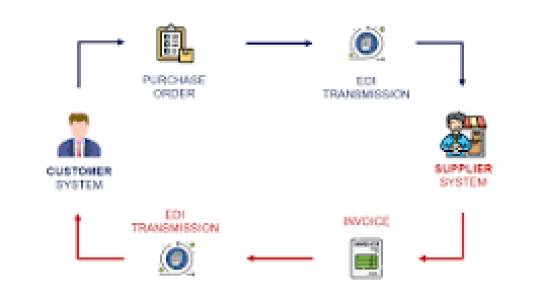Description
Streamline Your Business with EDI Transactions: Accelerate Efficiency and Reduce Errors
EDI (Electronic Data Interchange) Transactions revolutionize how businesses exchange crucial documents electronically, eliminating manual data entry and its associated inefficiencies and errors. Instead of relying on slow, error-prone methods like faxing or emailing, EDI allows for the automated exchange of structured data between trading partners. This results in significant improvements in speed, accuracy, and overall cost savings.
What are EDI Transactions?
EDI transactions are standardized electronic documents that represent business documents such as purchase orders, invoices, shipping notices, and payment instructions. These documents are formatted according to pre-defined standards (like ANSI X12, EDIFACT, TRADACOMS), ensuring seamless compatibility between different systems and trading partners. This standardized format minimizes ambiguity and facilitates automated processing.
Key Benefits of Implementing EDI:
- Increased Efficiency: Automating document exchange frees up valuable time and resources, allowing your employees to focus on more strategic tasks. The automated processing reduces manual labor and significantly speeds up transaction cycles.
- Reduced Errors: Manual data entry is a major source of errors. EDI eliminates this human element, ensuring data accuracy and minimizing costly mistakes. This leads to fewer disputes and improved relationships with trading partners.
- Lower Costs: EDI reduces operational costs by minimizing manual labor, paperwork, postage, and the costs associated with error correction. The automation also improves cash flow through faster invoice processing and payments.
- Improved Visibility and Traceability: EDI provides a clear audit trail of all transactions, making it easy to track documents and identify any potential issues. This enhanced transparency improves supply chain visibility and allows for proactive problem-solving.
- Enhanced Security: EDI transactions can be secured using encryption and other security protocols, ensuring the confidentiality and integrity of sensitive data.
- Scalability: EDI easily scales to accommodate growing business needs, making it an ideal solution for businesses of all sizes.
Types of EDI Transactions:
EDI encompasses a wide range of transaction sets, including but not limited to:
- Purchase Orders (850): Electronically transmitting purchase orders to suppliers.
- Invoices (810): Automatically sending invoices to customers.
- Shipping Notices (856): Providing real-time updates on shipments.
- Payment Orders (820): Facilitating electronic payments to suppliers.
- Functional Acknowledgements (997): Confirming successful receipt and processing of transactions.
Who Benefits from EDI?
EDI is beneficial for businesses in virtually any industry, particularly those with high transaction volumes, including:
- Retailers
- Manufacturers
- Wholesalers
- Healthcare providers
- Logistics companies
Getting Started with EDI:
Implementing EDI requires careful planning and consideration of various factors, including choosing the right EDI solution (cloud-based, on-premise, or hybrid), selecting appropriate translation software, and establishing secure communication channels with your trading partners. We offer comprehensive EDI solutions tailored to meet your specific business needs, including implementation, support, and ongoing maintenance. Contact us today for a free consultation.
Ready to experience the transformative power of EDI? Let's get started!
